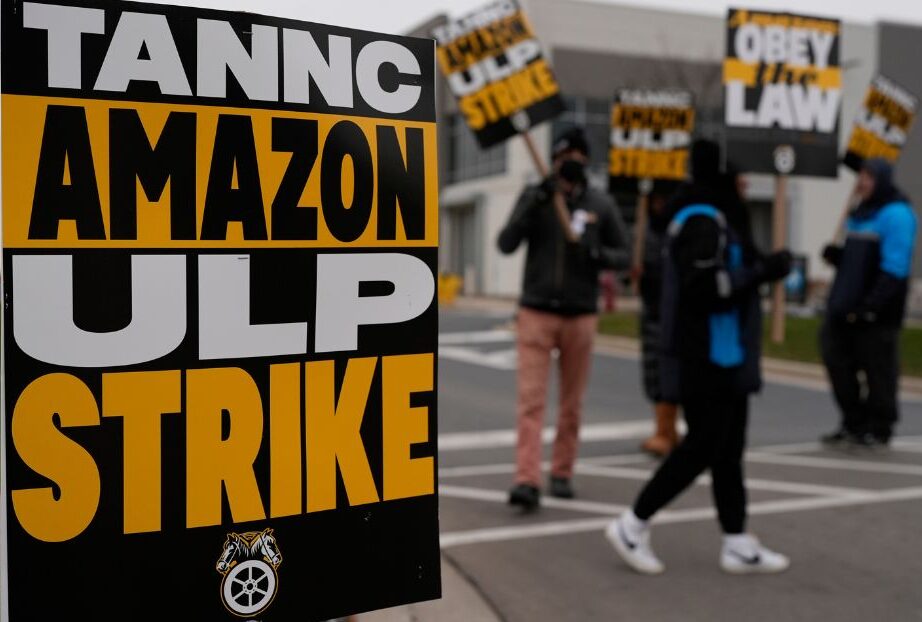The holiday season—a time when Americans gather with loved ones to celebrate faith, family, and tradition—was jolted this year as nearly 10,000 Amazon workers staged a strike across several states, throwing the nation’s supply chain into disarray just days before Christmas.
The move, orchestrated by the International Brotherhood of Teamsters, highlights escalating tensions between organized labor and one of the world’s most powerful corporations. While the union claims to champion fair treatment, the strike raises questions about its timing, motives, and impact on hardworking families.
The Teamsters argue that their demands—higher wages, enhanced benefits, and safer working conditions—are long overdue. Teamsters General President Sean M. O’Brien issued a fiery statement blaming Amazon’s “insatiable greed” for pushing workers to this breaking point. The strike, occurring at the height of holiday shopping, was clearly designed to wield maximum leverage, even as it leaves consumers wondering if their gifts will arrive on time.
Amazon, however, maintains that it provides fair compensation, citing an average pay package of over $29 per hour for fulfillment and transportation workers. The company also noted that many striking individuals are not directly employed by Amazon, challenging the union’s narrative. Kelly Nantel, an Amazon spokesperson, accused the Teamsters of spreading misinformation and using coercion tactics to inflate the scale of the disruption.
It’s important to recognize that this strike impacts more than Amazon—it disrupts everyday Americans who rely on timely deliveries, particularly during the holidays. Families waiting for gifts or essentials ordered weeks in advance now face delays, creating unnecessary anxiety and frustration during what should be a joyful season. Small businesses that depend on Amazon’s logistics network to reach customers also bear the brunt of the fallout, threatening their ability to stay afloat in an already difficult economy.
This confrontation comes as unions are flexing their muscles across various industries, from auto manufacturing to railroads. While the right to organize and bargain collectively is protected, strikes like these often prioritize short-term political gains over the needs of millions of Americans. It’s worth asking whether disrupting families and businesses just days before Christmas is truly the best path forward.
Amazon has built its empire on the promise of speed and convenience, transforming the way Americans shop and operate businesses. Yet, as with any large organization, sustaining that level of success requires constant recalibration. Workers’ concerns about safety and fair wages should be addressed, but such disputes should be resolved without holding holiday shoppers hostage.
Looking ahead, this strike may set the tone for labor relations in the gig economy, where rapid delivery services and on-demand platforms dominate. As unions push for more influence, companies like Amazon will need to navigate a complex web of expectations from workers, consumers, and shareholders. Finding a solution that avoids further disruption is paramount for the sake of American families and the economy.
This incident should serve as a wake-up call not just for Amazon but for policymakers and unions alike. Workers deserve respect and fair treatment, but the means of achieving those goals should never come at the expense of hardworking families and small businesses caught in the crossfire.



